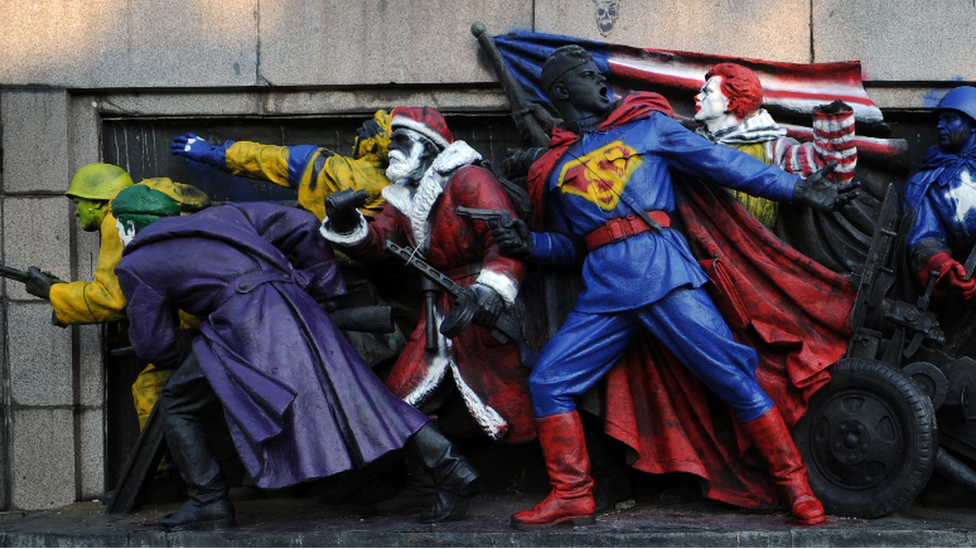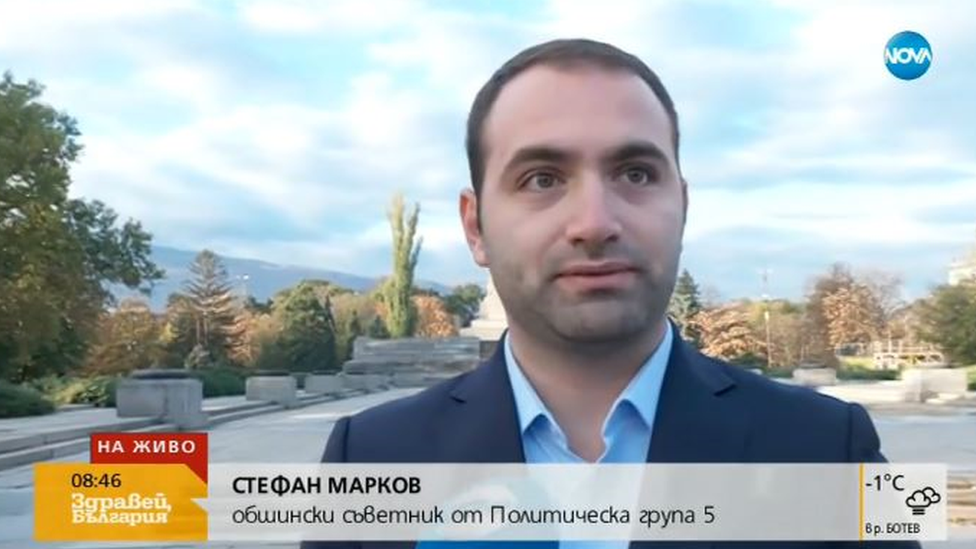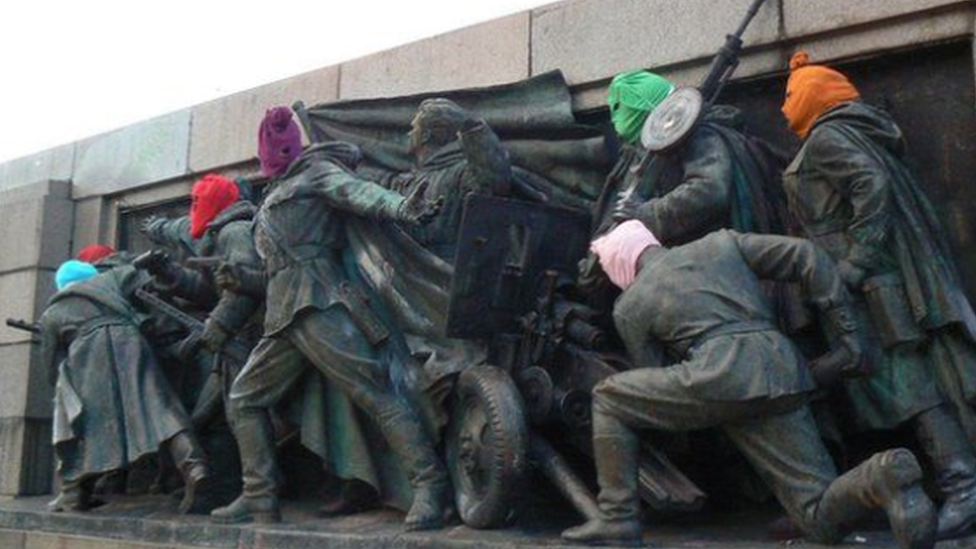Soviet monument gets Bulgarian guard
- Published

American icons lead the charge
Time may be up for graffiti artists who have been used to decorating Bulgaria's Soviet Army memorial in political colours, as the police have decided to put it under guard.
Two daubings in recent weeks caused anger in parliament, and Interior Minister Mladen Marinov has promised to set up CCTV cameras and regular police patrols around the massive monument in the centre of the capital, Sofia, Nova TV, external reports.
Mr Marinov says the police will pay particular attention to "people from high-risk groups in the close vicinity, and that means if they are observing or filming".
The first victims of these heightened security measures appear to be a pair of American tourists, who attracted police attention by taking a selfie in front of the memorial while holding up a newspaper.
It turns out that the newspaper has no political resonance, but simply features in all the photos they take of themselves while travelling the world.
The monument was unveiled in 1954, when Bulgaria was firmly in the Soviet camp, but since the collapse of Communism in 1991 its bas-relief of soldiers surging forward has been too tempting a target for anyone with a paint-tin and an agenda.

Councillor Markov deplores the increased security
Russia is far from amused, and regularly complains that Bulgaria allows passers-by to dishonour the memory of the Soviet troops that, in Moscow's eyes, liberated Bulgaria towards the end of World War Two.
After the most recent daubing of the memorial with white paint and oil, Russian foreign ministry spokeswoman Maria Zakharova wanted to know what Bulgaria was going to do about this "vandalism, external".
You may also be interested in:
Sofia monument gets Ukraine twist
Statue's glow-in-the-dark eyes mocked
Czech TV tower loses its babies
But the decision to increase security hasn't been popular with everyone at home. Sofia City Councillor Stefan Markov described it "another effort to show who loves Russia most."
"I'm against the idea of the monument getting protection, but not the area around it," he told Nova TV, referring to the fact that the police will only watch over the memorial, not the large surrounding park.
Many people on social media ask why there's money to guard monuments while some villages don't even have regular police patrols. "And who's going to guard the people of Bulgaria?" asks one Facebook user.
'Wrap it in toilet paper'
Another suggests that it is time to enlist Christo, Bulgaria's leading environmental artist, who is best known for enveloping large structures in fabric. "Let Christo wrap it in toilet paper," said.
The monument has long been a matter of dispute between Bulgarians who want it demolished and those who view it as a symbol of the country's historic ties with Russia, as well as being a magnet for graffiti artists.
In 2014 it was adorned with Ukrainian national colours in support of the Maidan uprising. Its soldiers were painted as American popular culture icons, and given a balaclava make-over in honour of the persecuted anti-Kremlin Russian punk band Pussy Riot in preceding years.

Pussy Riot were commemorated in 2013
Reporting by Krassi Twigg and Martin Morgan
Next story: Uzbek deputy PM sacked in ditch row
Use #NewsfromElsewhere to stay up-to-date with our reports via Twitter, external.